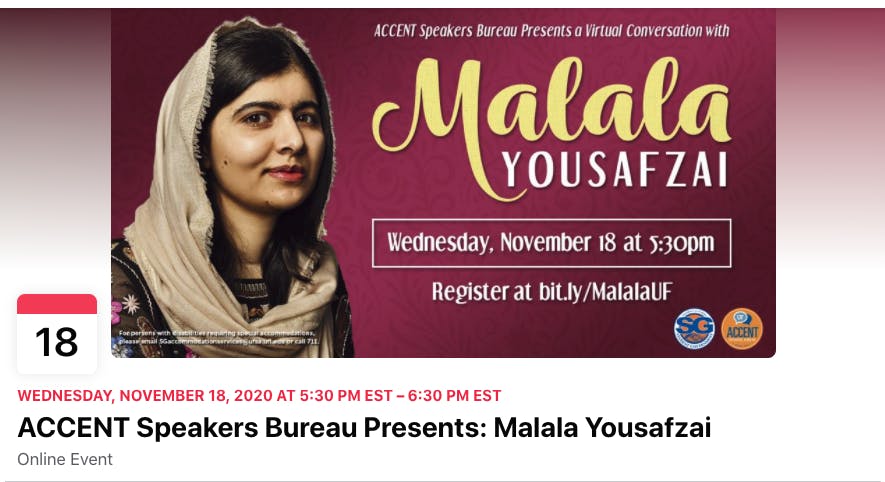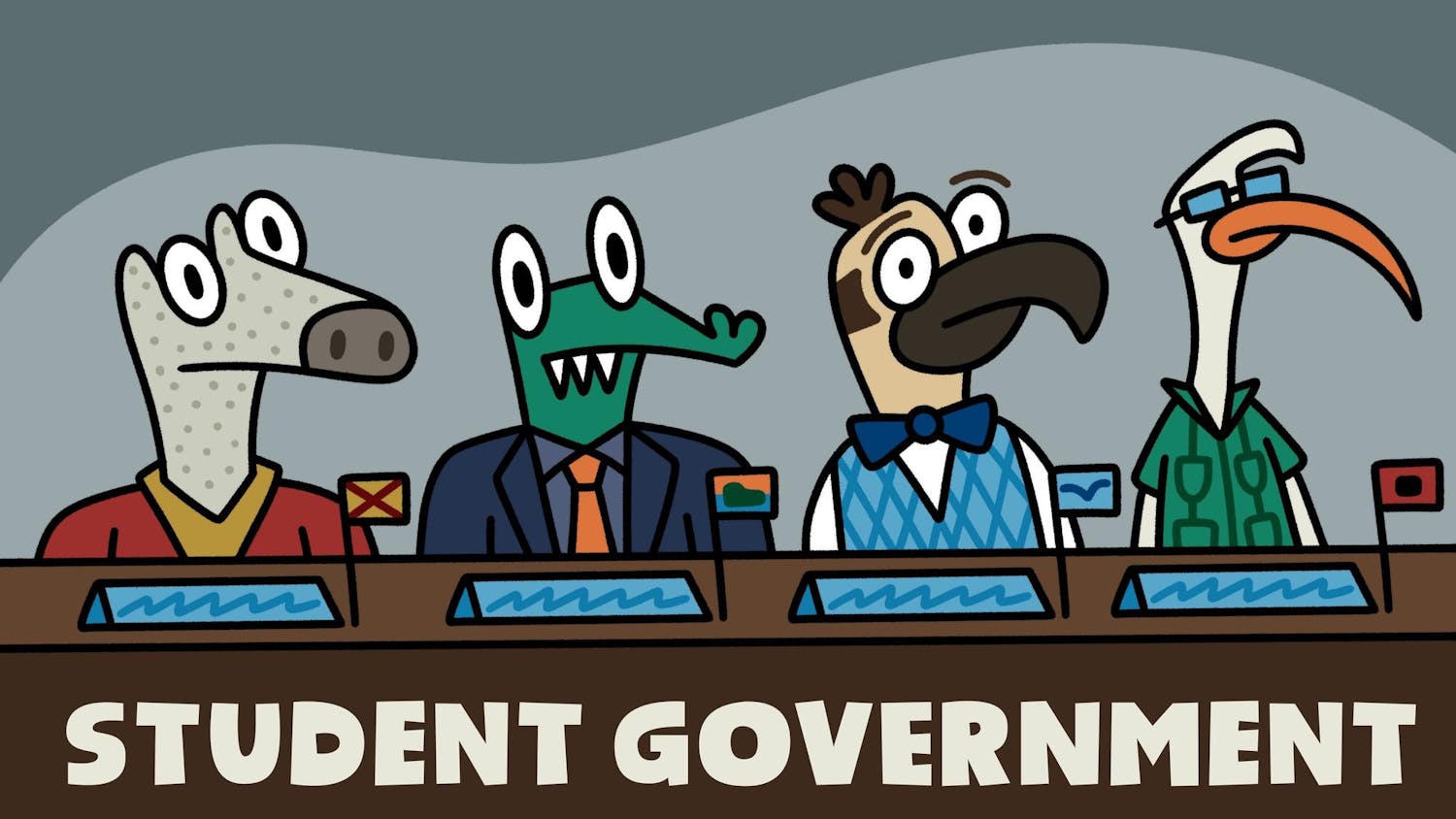
The youngest Nobel Peace Prize winner Malala Yousafzai spoke to UF students over Zoom about her fight for girls’ education, the meaning of feminism and her family.
Accent Speakers Bureau, a UF Student Government agency, hosted the hour-long event Wednesday evening. UF journalism professor Monimala Basu moderated the conversation with Yousafzai about her activism and aspirations. The event ended with 15 minutes of Q&A from students.
Basu reported on girls’ limited access to education in developing countries while a senior reporter at CNN.
The 23-year-old was paid $100,000 in student fees for her virtual appearance, according to the event contract.
Up to 3,000 virtual seats were available for students, Accent Chair Steven Wolf wrote in an email.
Yousafzai resisted the Taliban’s ban on girls’ education in Pakistan. She’s expanded her work to international advocacy, fighting economic and political barriers to education.
After graduating from Oxford University in June with a philosophy, politics and economics bachelor's degree, she wants to continue learning new languages and computer code.
“I have one big goal in life and that is to have all girls in school,” she said. “I think about the day when I see the last girl entering school.”
Yousafzai talked about the work still needed for the 130 million girls without education. She advised students on how to get involved, become leaders themselves and overcome imposter syndrome.
Yousafzai began her activism when she lost access to education. In 2009 the Taliban banned girls from education in Pakistan.
“I knew school was not just a place of reading and writing but it was also a place of emancipation for women,” she said.
In 2009, Yousafzai spoke out in anonymous blogs for the British Broadcasting Corporation and soon became a public opponent of the ban on education. In 2012, the Taliban shot her in the left side of her head while on a school bus.
She survived and two years later won the Nobel Peace Prize, a prestigious international award for social justice and peace. At 17 years old she became the youngest person ever to receive the award.
She wrote an acclaimed autobiography “I Am Malala” recounting her life story and activism, and established the Malala Fund, an international organization for girls’ access to second education.
Globally, about 20 million girls are at risk of losing their education due to the COVID-19 pandemic, Yousafzai said.
While the pandemic has threatened access to education, it has also revealed online tools for learning, she said.
“In the next five, six years, how do we set it up so those systems and those structures are ensuring all people can get quality, free education?” she said.
During the Q&A, a student asked Yousafzai how Gainesville students could help girls reach education.
She said the key is to continue raising awareness about the issue.
Since the COVID-19 pandemic, leaders of countries the Malala Fund works in, like Pakistan, Brazil and India, haven’t mentioned the impact of the virus on education and women’s safety, she said.
“You suddenly realize that if you do not continue your advocacy, if you do not continue pushing for these causes, it will never be brought up,” she said.
She encouraged students to write to their political leaders and ask how they’ve been promoting girls’ education in their work during the pandemic.
Another student asked Yousafzai how to overcome imposter syndrome. When Yousafzai began publicly speaking out about girls’ oppression at 11 years old she faced many fears, some of which UF students were familiar with.
“There have been moments where you have worried about how you look on camera, if you’re wearing the right thing or not and if your scarf looks good on you or not,” she said.
Overcoming those fears is all about confidence in yourself, she said.
“It's important you become your supporter, you become your friend, that you are always there for yourself,” she said.
Yousafzai had another major supporter in her activism: her father.
“He was a feminist before he knew the word feminism,” she said. “He was speaking on it. He was acting on it.”
Yousafzai believes men have a responsibility to fight for the education of their counterparts
"Feminism in simple words in equality. It's just another word for equality," Yousafzai said. "I think it's important we do not think about the word but think about the meaning and the mission it stands for."
Lianna Hubbard is a reporter for The Alligator’s Investigative Team. The UF women’s study major began as a freelance reporter three years ago. She founded her community college’s award-winning newspaper before beginning at The Independent Florida Alligator. See an issue in your community or a story at UF? Send tips to her Twitter.





